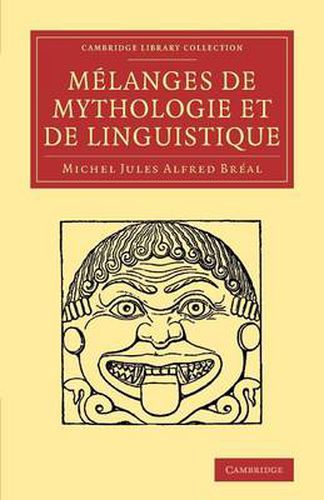Readings Newsletter
Become a Readings Member to make your shopping experience even easier.
Sign in or sign up for free!
You’re not far away from qualifying for FREE standard shipping within Australia
You’ve qualified for FREE standard shipping within Australia
The cart is loading…






The eminent French philologist Michel Breal (1832-1915) made significant contributions to the fields of comparative linguistics, pedagogy and etymology. He became a member of the Academie des Inscriptions et Belles-Lettres in 1875 and a commander of the Legion d'honneur in 1890. This work, first published in 1877, gathers together articles that Breal mostly wrote before 1869, when he was appointed secretary of the new and prestigious Societe de Linguistique de Paris. He argues that language and mythology have a common origin, which accounts for why most abstract nouns are feminine, in remembrance of ancient deities. Breal also exposes new ways to study languages and their impact in primary and secondary education. Lastly, he lays the foundations of modern semantics, a discipline he intended would reconcile historical linguistics with the philosophy of the Enlightenment.
$9.00 standard shipping within Australia
FREE standard shipping within Australia for orders over $100.00
Express & International shipping calculated at checkout
The eminent French philologist Michel Breal (1832-1915) made significant contributions to the fields of comparative linguistics, pedagogy and etymology. He became a member of the Academie des Inscriptions et Belles-Lettres in 1875 and a commander of the Legion d'honneur in 1890. This work, first published in 1877, gathers together articles that Breal mostly wrote before 1869, when he was appointed secretary of the new and prestigious Societe de Linguistique de Paris. He argues that language and mythology have a common origin, which accounts for why most abstract nouns are feminine, in remembrance of ancient deities. Breal also exposes new ways to study languages and their impact in primary and secondary education. Lastly, he lays the foundations of modern semantics, a discipline he intended would reconcile historical linguistics with the philosophy of the Enlightenment.